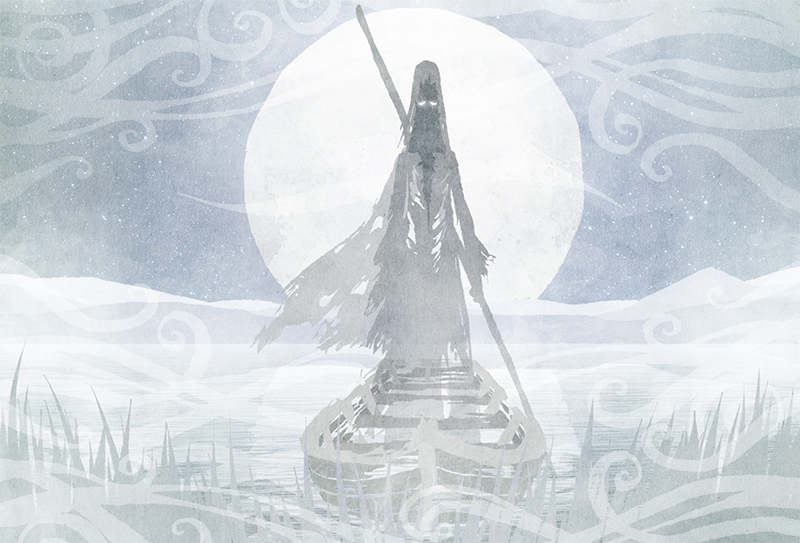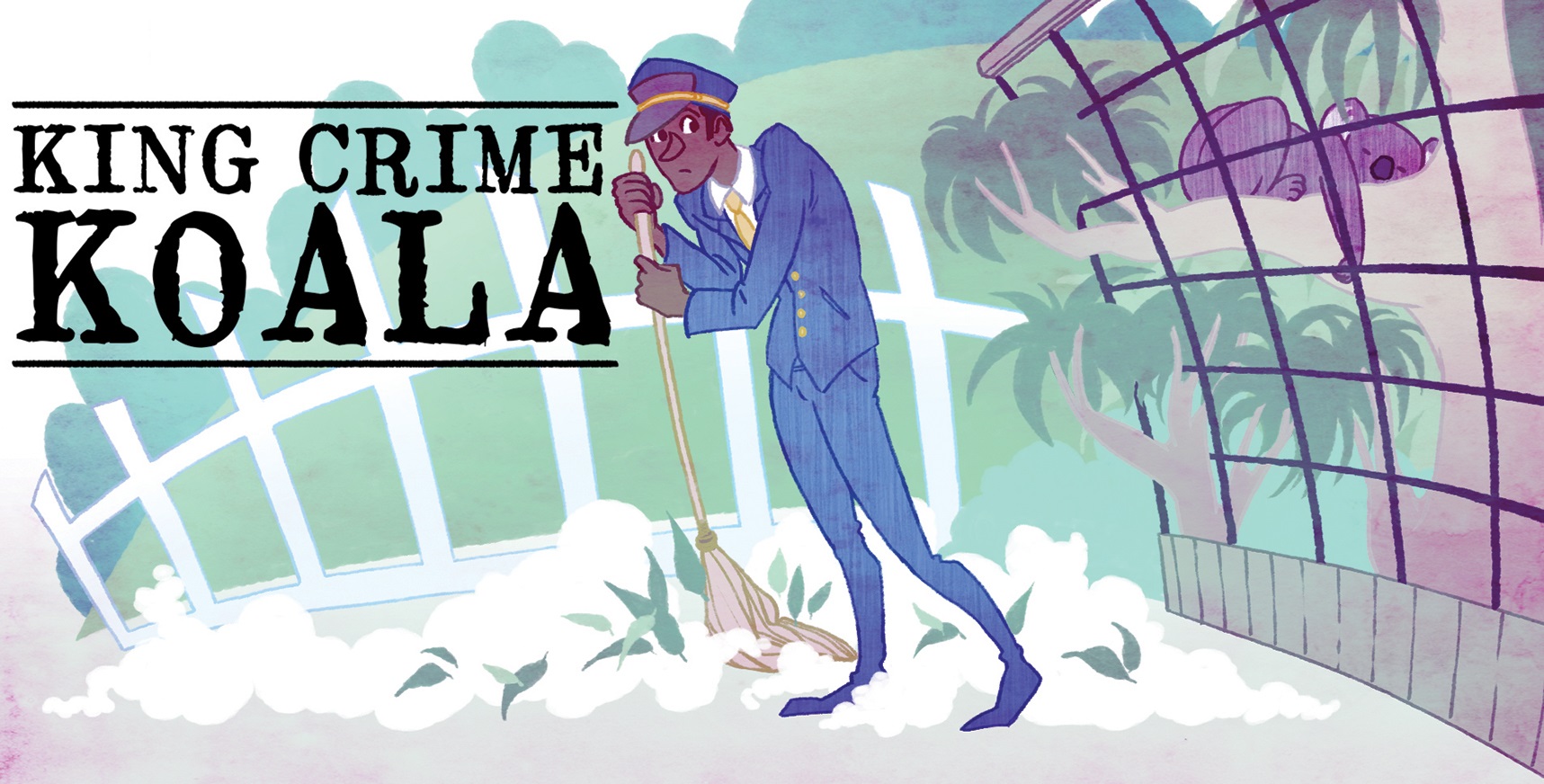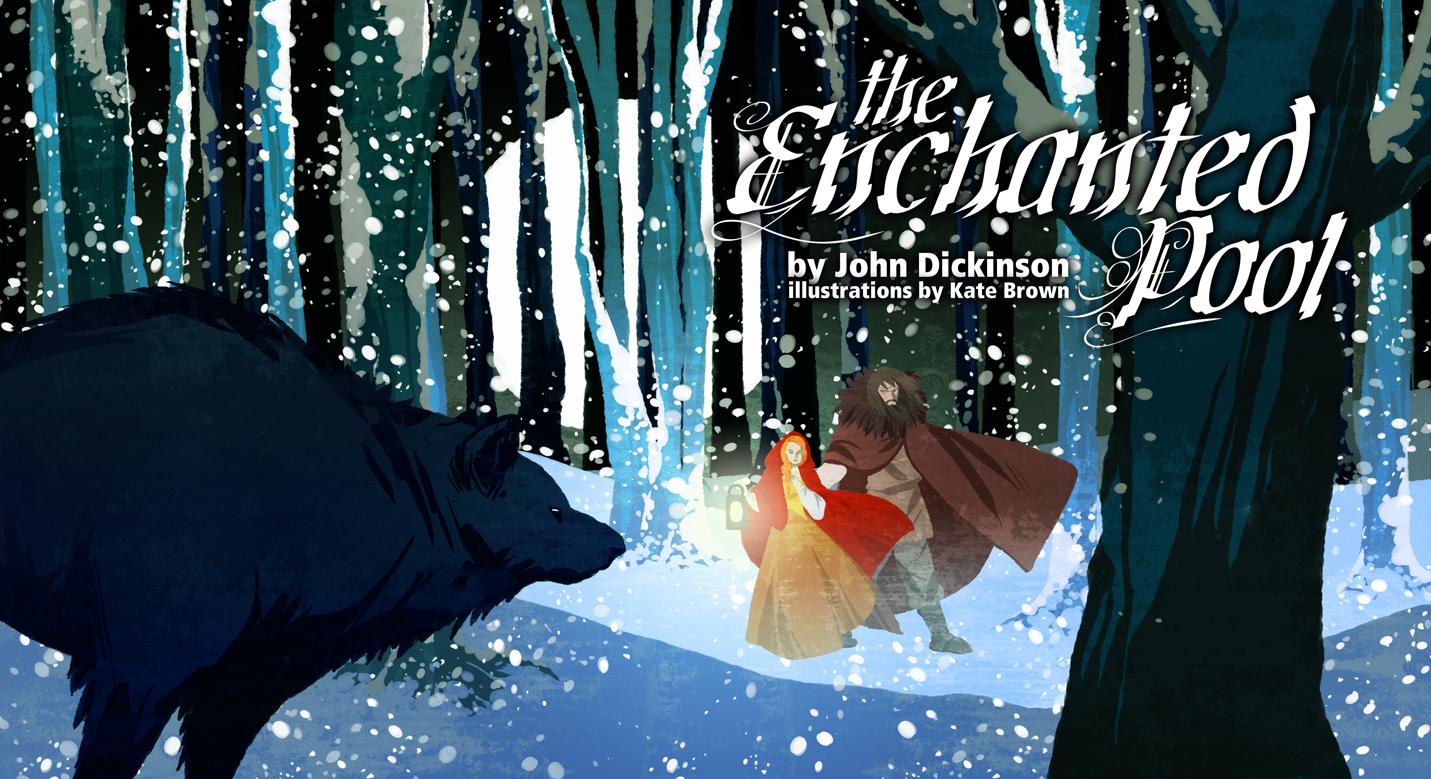Curse of the Ferryman: 3
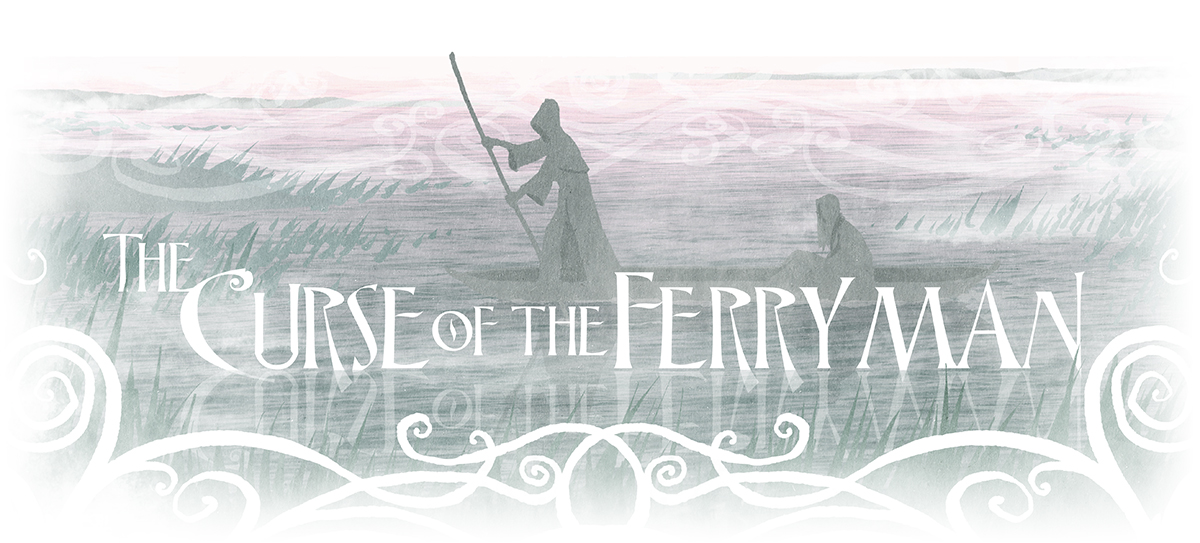
3. The Last Ferry
In the misty moonlight a mass of stone loomed. It was the ruins of the bridge that the floods had swept away.
Hanging from it was the ferry bell.
The bell was for the ferryman. She had known it all her life. People had rung it to call her father to carry them over the river. And sometimes, when the dogs of Limmon had run howling through the glen, he had taken his boat and pole and waited here for the hunted men, so that he could carry them in secret across the river to safety.
With desperate sadness and longing, she looked up at the bell.
The new ferryman was not like her father. He would not be out now, so late at night. He would be drunk, or too lazy. He would know the dogs were hunting. He would never dare to risk the anger of the sons of Lorne. There was no hope that he would come.
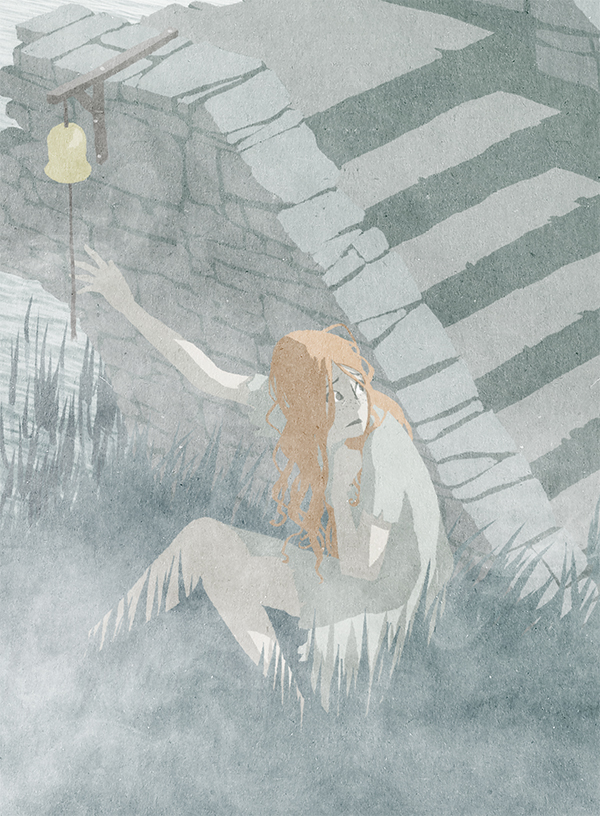
But there was no other hope.
Praying that he would hear, and that the hunters would not, Lily reached for the clapper-rope. It was damp and cold.
Ting.
And out of the night, the ferryman came.
He came riding in his narrow boat, driving it through the water with his pole. He must have heard the hunters but he said nothing. He turned with a swirl of water right by the bank where Lily lay. She flung herself waist-deep into the river and scrambled over the prow.
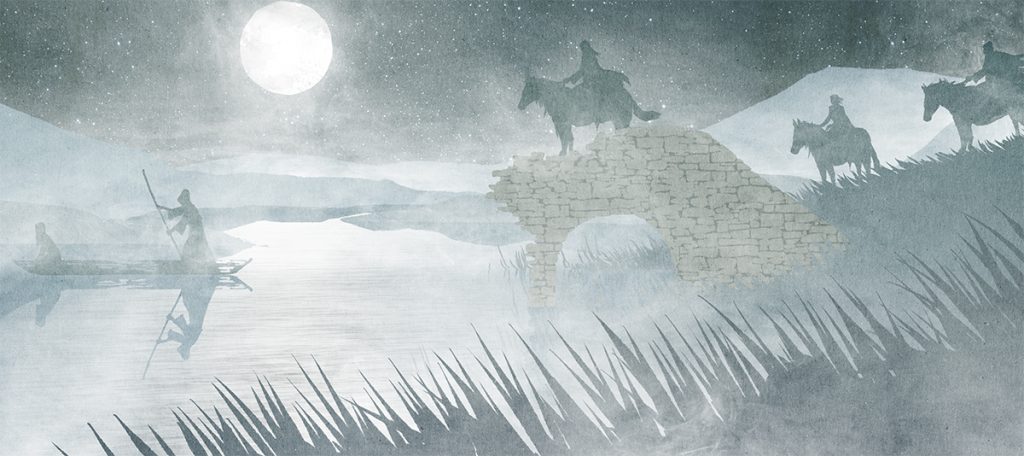
Splash, splash, the ferryman drove from the shore. Behind them the horses turned in the mist, hunting up and down. A dog howled. A rider cursed and a whip cracked. The pole splashed in the river, but the man made no sound. He did not grunt with the effort.
Slowly, coldly, Lily realized that she could not even hear him breathe.
The man behind her was tall. He was a head taller than anyone in the glen.
She looked over her shoulder. Her heart lurched as she saw the face under the ferryman’s hood. She grabbed the sides of the boat and stared ahead into the mists. She did not look back again.
Dogs bayed and men cursed. The river ran with a thick noise, lap-lap-lap all around her. Splash, went the pole in the water. The ferryman made no sound.
The boat pushed on into mist. In the deep water death rolled within inches of her hand. Red death raged along the bank behind her, the noises fading. Ahead there was nothing. The ferryman made no sound.
The river was not as wide as this! It was not this far from bank to bank! The banks had disappeared, and there was nothing but water and mist, and the silent figure behind her, with his eyes upon her back. Splash went the pole, and the ferryman made no sound.
Then suddenly, ahead – a black mass of reeds! It was the far shore of the Limmon, stretching to left and right until it was lost in the mist.
The boat nosed among the rushes. Lily hurled herself into the shallow water. She floundered and stumbled up the muddy bank. She felt the solid earth beneath her feet.
The ferryman stood in the boat. He was so thin that he might have had no flesh at all. From under the ragged hood his eyes gleamed in the moon.
She had no money, but money was not what he wanted. Her father had taught her how a ferryman must be paid.
‘Lorne of Limmon,’ she said, with her heart beating hard.
‘You have done a good thing for me – and I thank you.’
The ferryman bowed his head.
Ting-Ting-Ting! It was the bell on the far shore. The hunters had found it and were ringing it impatiently.
Ting-Ting-Ting!
The ferryman turned his boat and headed it back across the water. Lily started up the slope as fast as her weary legs could carry her. Behind her the river was lost in the darkness.
But where this story comes from, no one can say. The only one to come away from the river that night was Lily, and she saw nothing.
All she remembers is walking uphill with the sound of the ferry bell in her ears, and that suddenly it stopped as if some hand had gripped the clapper and silenced it forever.
And the reeds of the Limmon sighed, like a sleeper putting his head back on a pillow.
THE END
